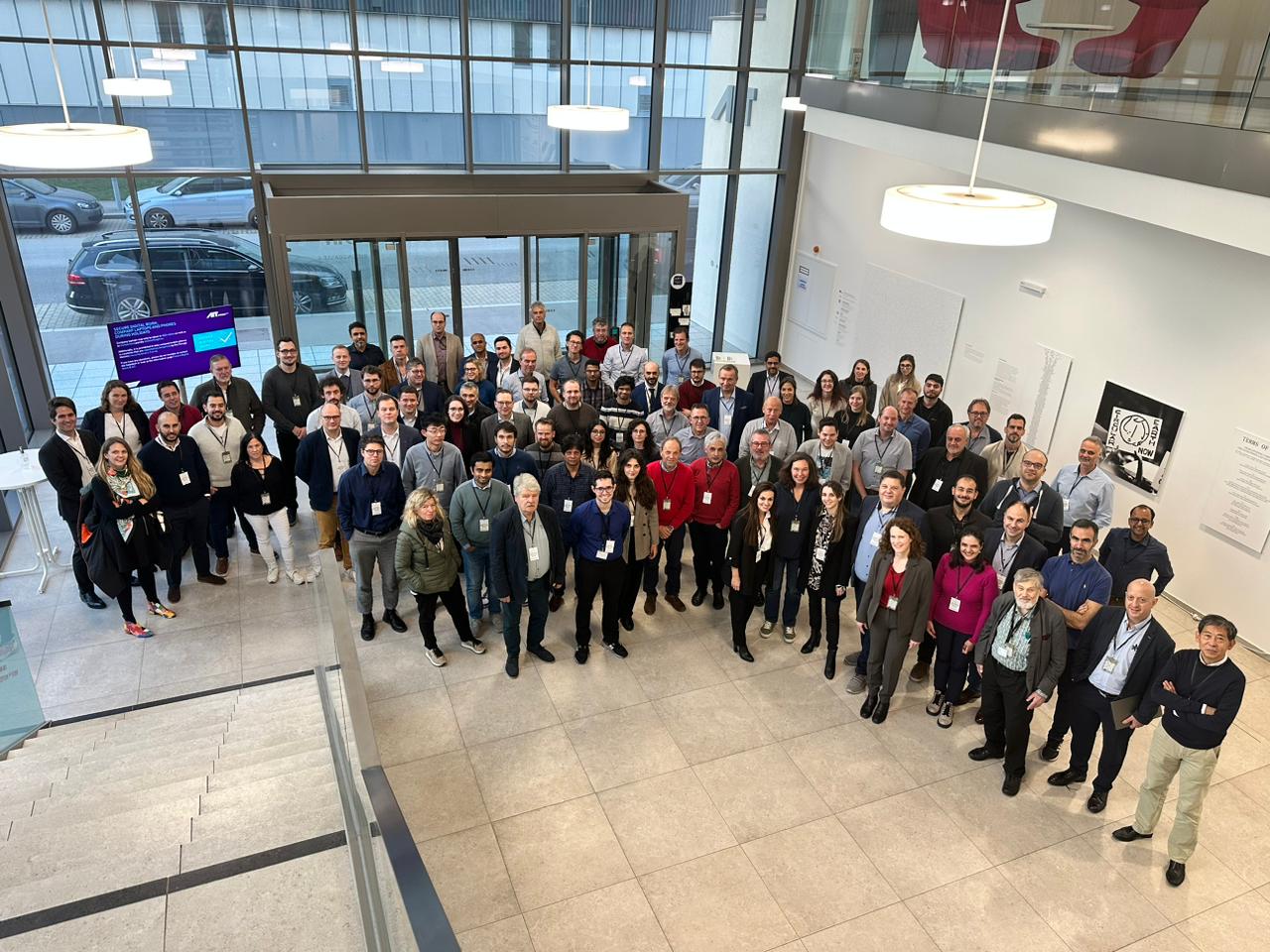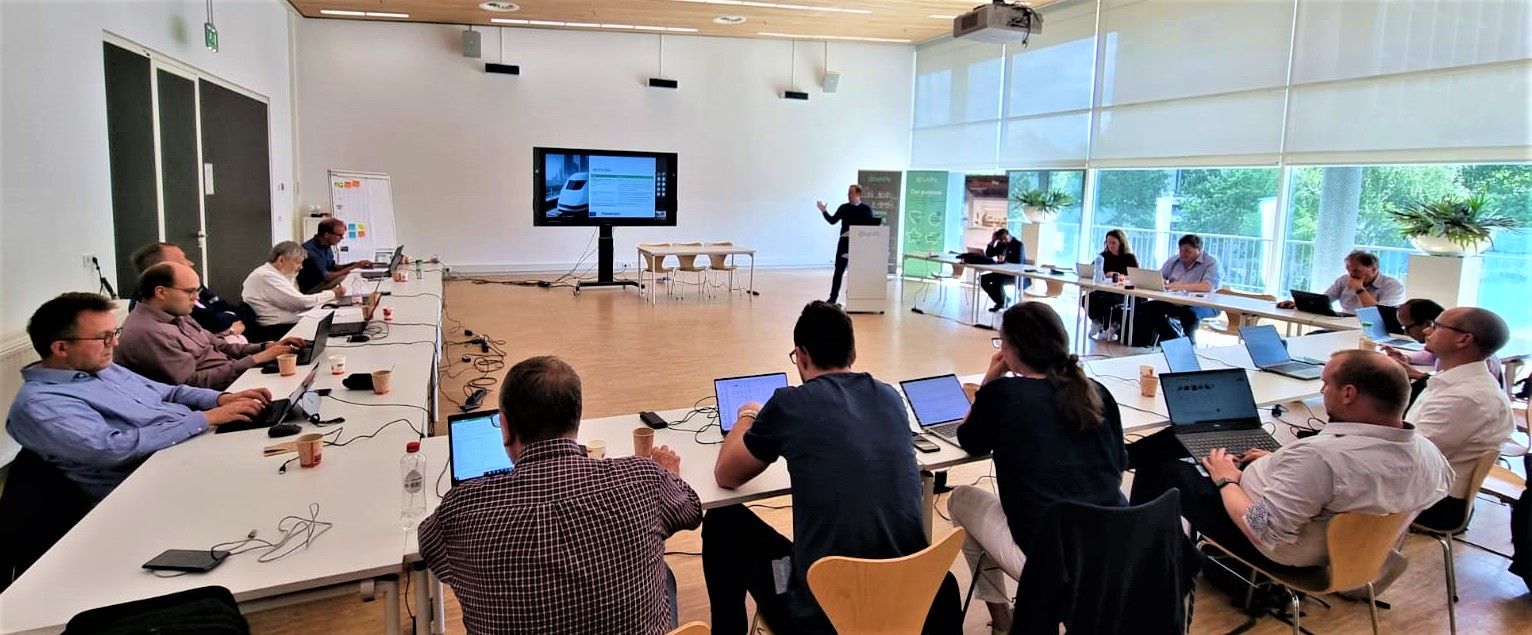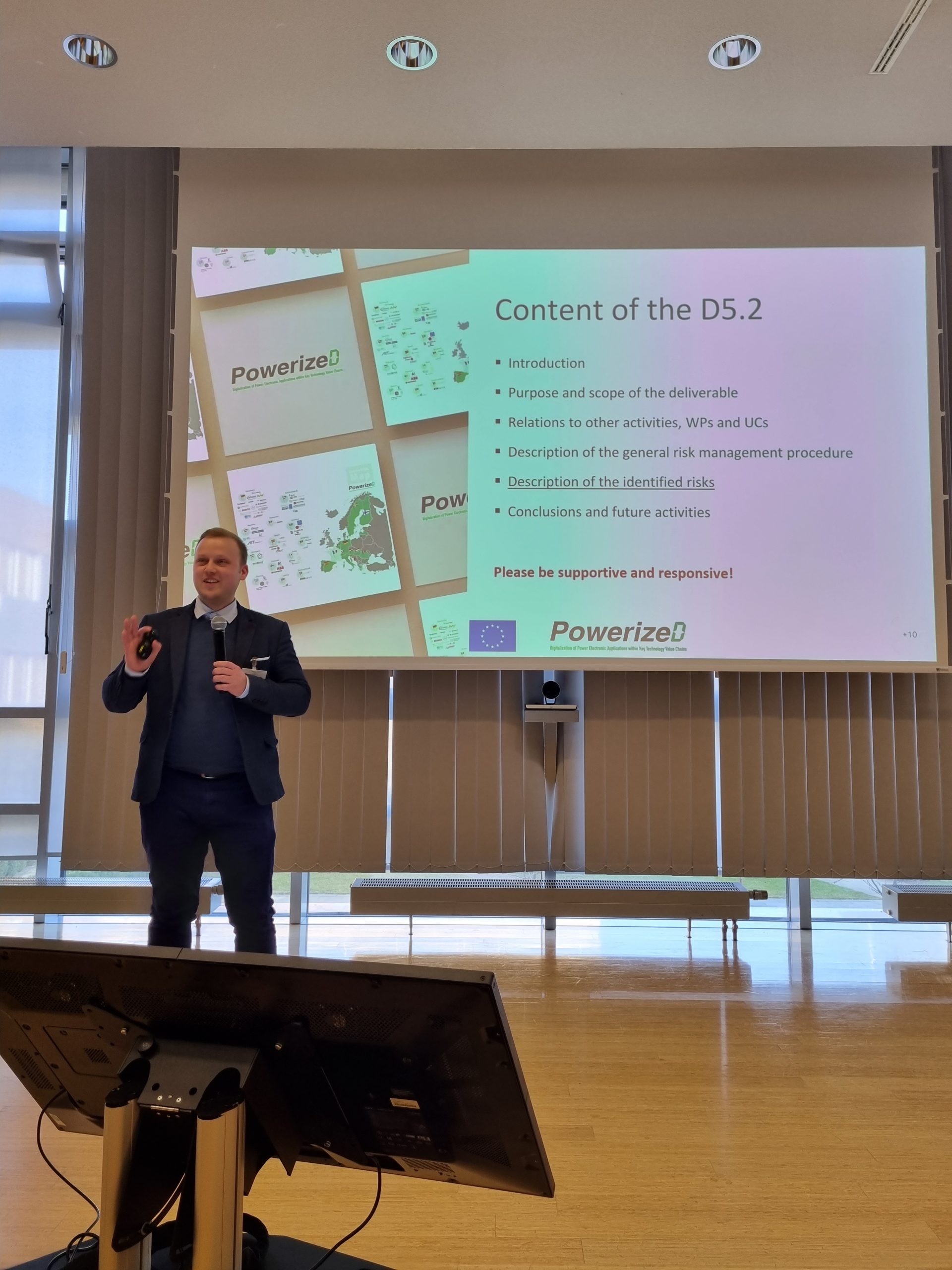Project goal and tasks:
The overarching goal of PowerizeD is to develop breakthrough technologies of digitalized and intelligent power electronics, in order to enable sustainable and resilient energy generation, transmission and applications. PowerizeD enhances the level of mechanical and electrical integration of new driver circuits into power electronics and allows for the first time common optimization of all power switch functionalities. Regarding data sharing along the value chain, PowerizeD drives the novel approach of Federated Learning as a methodical approach to an intrinsically encrypted transfer of confidential and proprietary data. Also new is the usage of detailed electrical physical models in digital twins of real time digitally monitored and controlled power electronic devices. Unlike other projects focusing on competence and technology with limited effort on demonstration, this project will start from vital societal needs, by identifying and analyzing the key generic technology challenges from broad application scopes. A major effort will be spent on cross-domain research and innovation. The developed technologies will be demonstrated and evaluated via a large number of universally applicable results. To realize this ambition, a large project consortium will incorporate the needed competencies and resources along the whole value chain. 24 Large Entities, 19 Small Medium Enterprises and 22 research partners from 12 EU countries – representing the entire value chain from materials to “system of systems” – strive to demonstrate the applicability of these innovative approaches to multiple industrial domains. Among the concrete objectives are a 25% reduction or power losses, a device and system lifetime increase of 30%, a chip size reduction of at least 10% and a shortening of the design time by 50%. By this, PowerizeD addresses the three megatrends Independence, Sustainability and Digitalization, thereby opening pathways to massive economic and societal benefits for the EU.
Tasks to be performed by EDI
In this project, EDI will research available electronic component model databases from level 3 (very accurate, but slow) to level 1 (less accurate, but fast) and analyze the most promising data collection approaches to ensure both accuracy and speed. Also, EDI will explore various implementation concepts of running neural networks on multiple energy-constrained devices (edge devices) with an aim of increasing performance from combined learned information, while maintaining the privacy of sensitive information. In addition, EDI will explore control algorithms and their implementation for the newly designed gate driver. For this purpose, EDI will attempt to utilize modern Artificial neural network (ANN)-based algorithms for finding optimal control approaches while potentially restricting the control signals for protecting electronic components. Lastly, EDI will develop new AI-based algorithms for efficient model building. Various optimization techniques and pre-processing approaches will be researched to improve the accuracy and performance (e.g. speed) of the model building.
PowerizeD is supported by the Chips Joint Undertaking and its members, including the top-up funding by National Authorities under Grant Agreement No 101112295.
Funded by the European Union. Views and opinions expressed are however those of the author(s) only and do not necessarily reflect those of the European Union or the granting authority. Neither the European Union nor the granting authority can be held responsible for them.
![]()

Participating scientists
Dr. sc. ing. Kaspars Ozols
Deputy director of development, Senior Researcher
+371 67558161[protected]





